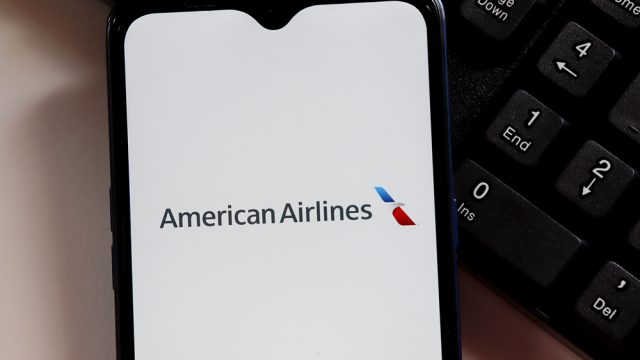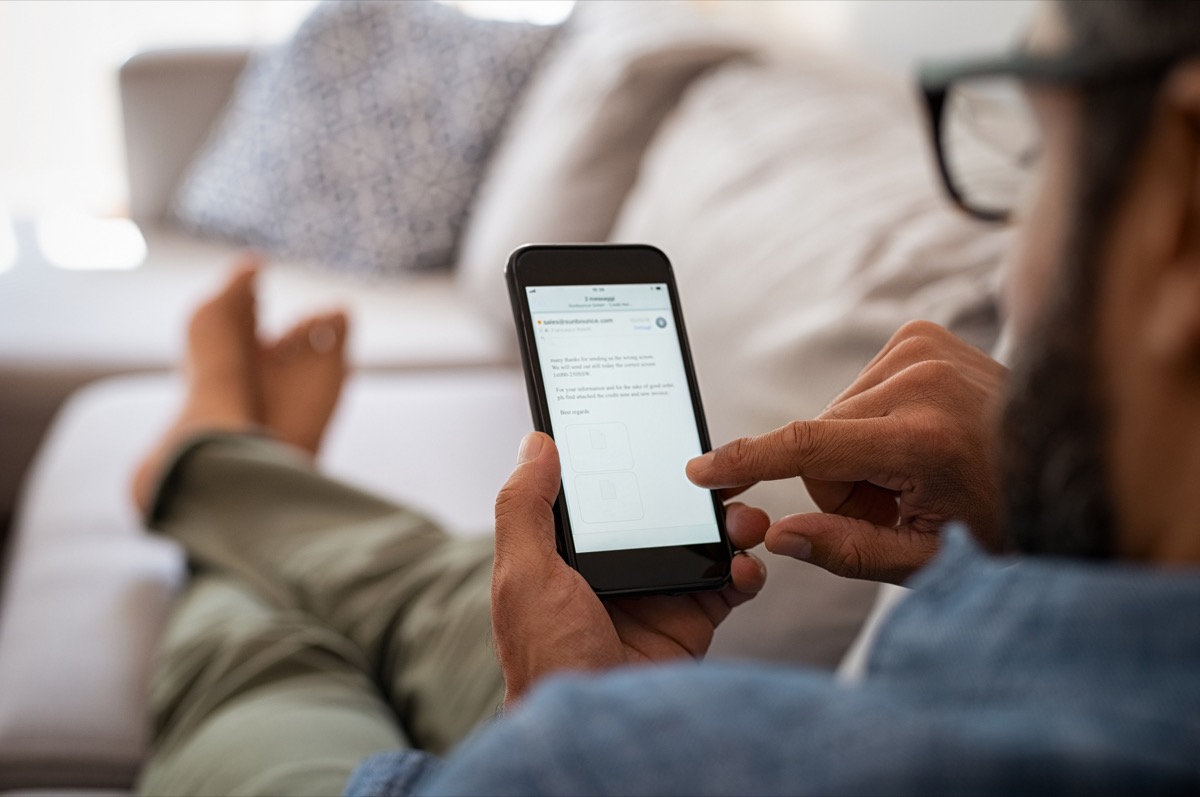If You Get This Email From American Airlines, Delete It Immediately

Let’s face it: A constantly overflowing inbox is one of the harsh realities of using email. Luckily, important messages usually still make their way through all that unwanted spam, including things like travel documents or flight information. But if you receive a particular type of email from American Airlines, you should beware of a cam that’s been reported recently. Read on to see how to spot a potentially suspicious communication from the carrier.
RELATED: If You Get This Message from Your Bank, Contact Authorities, FBI Says.
Delete any email claiming to be from American Airlines saying your email address was changed.

According to John E. DiScala, founder of the Johnny Jet travel blog, there’s a new scam targeting potential victims by disguising itself as an alert from American Airlines. The message claims that “your primary email was changed” in the subject line and uses a very legitimate-looking layout in the body.
DiScala writes that since he had just canceled a flight with the airline earlier in the day, when he first received one of the messages on his phone he didn’t pay it much mind. However, when he accessed the email from his computer, he was able to see that it was actually sent from another address masking itself as the airline in an apparent “phishing” scam to hack his account and steal personal information.
You should visit the site directly instead of clicking any links in suspicious or unexpected emails.

Fortunately, DiScala figured out the phishing attempt before handing over any personal information. But he says that in cases when he receives emails like this, he always follows a simple rule.
“Even if I didn’t have my computer nearby, I still wouldn’t have clicked a link in a suspicious email. Instead, I would go directly to AA.com (or whichever site they’re pretending to be) and change my password,” he writes. “Never click the link in the email or any email unless you know for certain it’s legitimate. You can always just type in the web address manually to avoid hackers from infecting your computer or getting hold of your login credentials.”
RELATED: For more up-to-date information, sign up for our daily newsletter.
The Better Business Bureau has warned of a similar email scam involving airlines.

Unfortunately, this isn’t the first time a potential email scam involving fraudsters posing as an airline has been reported. In 2019, the Better Business Bureau (BBB) issued a warning that scammers were sending messages pretending to be from American Airlines, Delta Air Lines, and Southwest Airline—even though the agency says the name can easily be changed to appear as any carrier, local Baton Rouge CBS affiliate WAFB reported. Such messages usually contain company logos and small touches to the text to make them appear authentic.
Typically, the agency says the fraudulent emails will be unsolicited and masking as an alert about a flight change, asking to take a survey about a recent flight, or prompting you to download a recent ticket purchase. They can also redirect you to a website that looks like an airline’s reservation center. These links are then used to steal personal information or download and hide malware to gain access to your computer.
You can avoid falling for an email scam by taking some basic extra precautions.

While phishing attempts can appear very sophisticated or difficult to spot, the BBB still says there are some simple ways to avoid falling victim to scammers. They advise against clicking any links or downloading attachments from any unsolicited emails sent from an unknown address—especially if the message doesn’t address you by name or include any personal information.
If you’re still unsure, the agency recommends hovering your mouse over any link without clicking to see which address it will send you to. And when in doubt, you can always contact the airline’s customer service by visiting the company’s website directly.
RELATED: There’s an Urgent New Warning for Walmart and Amazon Shoppers.